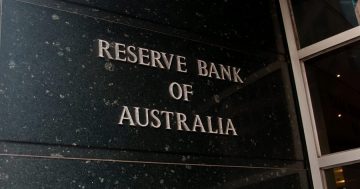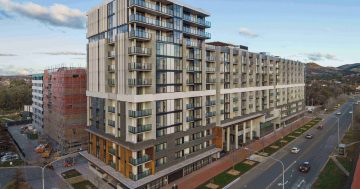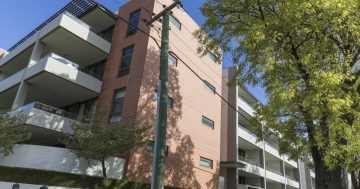
David Robertson, Head of Economic and Market Research for Bendigo and Adelaide Bank.
Each quarter, David Robertson, Head of Economic and Market Research for Bendigo and Adelaide Bank, keeps us updated on the state of the ACT economy with a quarterly market update drawing on statistics from the Reserve Bank of Australia (RBA), Australian Bureau of Statistics (ABS), and Real Estate Industry of Australia (REIA).
July to September, 2018 quarter
Well, we may be a little past the September quarter, but we were very interested to see what effect (if any) the US midterm elections would have on global finance.
So far we seem to be coping, with the Australian stock market recovering almost half of the October drop, although offshore markets are nervous. The Reserve Bank also announced that interest rates would stay the same (1.5 per cent) earlier this month, which we believe is likely to continue well into 2019.
On the ACT front, the market hasn’t changed a whole lot from where we were in July. Considering the ACT has been outperforming most other states and territories in a number of areas, no news could be seen as good news!
Job market
The jobs market is the highlight of the ACT economy right now, as the ACT continues to boast the lowest unemployment rate in the country at 3.6 per cent.
National unemployment fell from 5.4 per cent to 5 per cent, but the ACT still leads by a fair margin.
Youth unemployment is also down in the ACT, having fallen from 8 per cent three months ago (or 10.2 per cent a year ago) to 6.2 per cent. We’re not sure what’s driving the fall, but it’s certainly impressive and much lower than the rest of the country where youth unemployment is closer to 10 per cent.
The participation rate in the jobs market is still very high at 70 per cent, though wage growth has struggled. Wages grew by only 1.8 per cent which is lower than all other states except Western Australia. This could be due to ACT’s higher public sector employment, as private sector wage growth increased across the board by 2.1 per cent.
Growth
ACT’s overall growth rate sits at 5.8 per cent, which is very strong compared to Australia’s GDP growth at 3.4 per cent and higher than all other states and territories.
This appears to be driven by a healthy mix of consumer and business spending.
What does appear to be missing is an inclination for business investments, which could be due to concerns around the housing market, and the Banking Royal Commission further tightening lending standards. Ongoing trade tensions between China and the US may also be playing a part for those businesses linked to overseas markets.
Spending
Retail spending in the ACT did well last quarter, helped along by a stronger jobs market and steady housing prices.
Strong spending could also be due to population growth which is still around 2 per cent – second only to Victoria at 2.3 per cent. This may put pressure on housing supply though, and continue to create a challenging rental market. It’s an interesting dynamic, so we’ll just have to wait and see how this trend plays out.
Housing
Despite house prices struggling in most states and territories, the ACT continues to see strong prices with the average price of a Canberra property up 2 per cent year on year.
Sydney and Melbourne are both over 5 per cent down year on year, which seems to have created a flow of investors into regional areas.
Sales volume in the ACT is falling though, so there is no guarantee that the market hasn’t peaked. Only time will tell.
The ACT still has the lowest percentage of family income needed for the average home loan (20.9 per cent) and rental payments (18.6 per cent).
We believe Sydney and Melbourne still have further to go with their housing price declines, however it will likely be less dramatic in smaller cities such as Canberra, and perhaps even lead to a gain in regional areas.
The current quarter ends December, and the coming month often provides a positive spike in retail spending in the lead up to Christmas.
It will be interesting to see how our national politics, notably the impending federal election, will affect the market as we head into next year and endure a couple of months of political campaigning.
I hope everyone has a wonderful Christmas and New Year, and I’ll see you back here in early 2019!
Until then…
David Robertson.




















